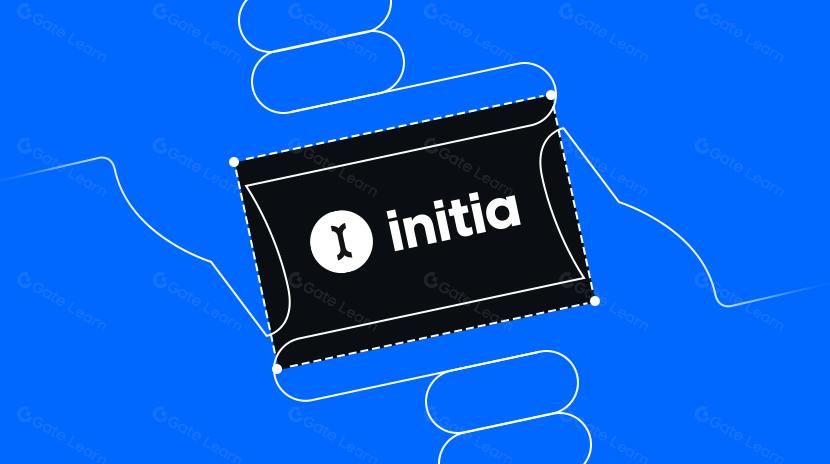Membros Fundadores da OpenAI Investem! Uma Breve Exploração da Inovação em IA Descentralizada — Prime Intellect
O que é Prime Intellect - o projeto de IA apoiado por figuras-chave como membros fundadores da OpenAI, o ex-diretor de IA da Tesla e o ex-CEO da Stability AI?
À medida que a tecnologia de IA avança a um ritmo sem precedentes, a centralização do poder computacional e seus altos custos continuam a ser grandes obstáculos à inovação e acessibilidade. O Prime Intellect é um protocolo de computação e inteligência descentralizado peer-to-peer projetado para aproveitar os recursos de computação distribuídos globalmente, facilitando o desenvolvimento colaborativo de modelos de IA e oferecendo um novo caminho para a IA de código aberto.
Este artigo explora o Prime Intellect a partir de três ângulos-chave: seu histórico de investimento, equipe e como o protocolo opera.
Antecedentes da Equipa Prime Intellect
A Prime Intellect foi fundada em janeiro de 2024 por dois co-fundadores, Vincent Weisser e Johannes Hagemann.
CEO Vincent Weissertem experiência relativamente extensa em Web3, focando principalmente nos setores de DeSci e IA. Ele é co-fundador de projetos DeSci como Bio Protocol, VitaDAO e CryoDAO. Anteriormente, também atuou como Chefe de Ecossistema e IA na DeSci Molecule. Além disso, Vincent Weisser ajudou a estabelecer a comunidade experimental Zuzalu.city em 2023.
CTO JJohannes Hagemannconcentra-se na IA descentralizada, semi-automatização, otimização energética, otimismo tecnológico explícito, interfaces cérebro-computador (ICCs), longevidade e outros campos. Anteriormente, trabalhou como Engenheiro de Pesquisa em IA no desenvolvedor alemão de sistemas de IA, Aleph Alpha. De maio de 2021 a janeiro de 2023, também atuou como consultor estratégico na VitaDAO.
Antecedentes de financiamento: Principais figuras de IA aumentando seu investimento
Em abril de 2024, o Prime Intellect completou uma rodada semente de $5.5 milhões liderada pela Distributed Global and CoinFund, com participação da Compound, Collab+Currency e Juan Benet, o fundador da Protocol Labs. Além disso, esta rodada atraiu investidores-anjo proeminentes, incluindo Clem Delangue, o CEO da Hugging Face, um dos principais provedores de ferramentas de aprendizado de máquina.
No início de 2025, o Prime Intellect atingiu mais um marco importante de financiamento, garantindo $15 milhões numa nova ronda liderada pelo Founders Fund de Peter Thiel, com a Menlo Ventures entre os investidores. Esta ronda atraiu várias figuras influentes das indústrias de IA e Web3, incluindo:
- Andrej Karpathy (EurekaAI, Tesla, OpenAI)
- Clem Delangue (CEO da Hugging Face)
- Dylan Patel (SemiAnalysis)
- Tri Dao (Chief Scientist na plataforma de nuvem de inteligência artificial generativa Together.AI)
- Balaji Srinivasan (Escola de Rede)
- Emad Mostaque (Co-fundador da Stability AI)
- Jake Medwell (Co-fundador da 8VC)
- Brendan McCord (Instituto Cosmos)
- Sandeep Nailwal (Co-fundador da Polygon)
Com esta rodada, o financiamento total da Prime Intellect ultrapassou os $20 milhões.
Notavelmente, Andrej Karpathy, um dos investidores da Prime Intellect, foi membro fundador da OpenAI, onde atuou como cientista de pesquisa e mais tarde se tornou Diretor de IA da Tesla. Emad Mostaque, anteriormente CEO da Stability AI, demitiu-se para se concentrar em IA descentralizada e também atua como consultor da Render, um fornecedor de soluções de renderização de GPU descentralizada. Além disso, a Menlo Ventures, um investidor participante, possui um portfólio impressionante que inclui Uber, Poshmark e Anthropic.
Como Funciona?
De acordo com o seu comunicado oficial, o Prime Intellect baseia-se em todos os esforços existentes de IA descentralizada, desenvolvendo infraestrutura e incentivos económicos para agregar e coordenar recursos computacionais globais, com o objetivo de criar um ecossistema de IA de código aberto verdadeiramente soberano. O protocolo está atualmente a ser executado na sua testnet interna e foi totalmente integrado e lançado sob SYNTHETIC-1. No último ano, o Prime Intellect entregou vários projetos e produtos-chave.
Compute Exchange: Prime Intellect agrega, coordena e agenda recursos globais de GPU, integrando a potência de computação de centros de dados, fornecedores de serviços em nuvem e até mesmo proprietários individuais de GPU num pool de recursos unificado. Os utilizadores podem selecionar os recursos de GPU mais rentáveis com base em fatores como tipo de chip, quantidade e duração de aluguer. Esta abordagem não só reduz o custo do treino de IA, mas também melhora a democratização da tecnologia de IA, otimizando a correspondência entre oferta e procura e aumentando a utilização de recursos.
PRIME: Estrutura de Treino Descentralizada: PRIME permite o treino de modelos em grande escala numa rede de computação distribuída globalmente, oferecendo treino tolerante a falhas, ativação/desativação dinâmica de recursos e comunicação otimizada e roteamento em redes de GPU distribuídas.
Em outubro de 2024, Prime Intellect lançou uma execução de treinamento descentralizada para um modelo de 10 bilhões de parâmetros, INTELLECT-1. Principais jogadores de IA de código aberto, incluindo Hugging Face, SemiAnalysis, Arcee, Hyperbolic, Olas, Akash e Schelling AI, contribuíram com recursos de computação para esta iniciativa.
GENESYS: Estrutura de Geração de Dados Sintéticos: GENESYS é projetado para geração escalável de dados sintéticos, facilitando a expansão de conjuntos de dados, verificação e tarefas de validação crowdsourced. Em fevereiro de 2025, Prime Intellect anunciou o uso do DeepSeek-R1 para criar SYNTHETIC-1, um conjunto de dados open-source com traços de raciocínio matemático, de programação e científico verificados.
TOPLOC: Método de inferência verificável: O Prime Intellect introduziu o TOPLOC, um método para inferência de IA verificável. Ele utiliza o LSH (Locality Sensitive Hashing) para detetar com precisão modificações não autorizadas em modelos, prompts ou precisão computacional. Ao gerar respostas, o pré-preenchimento é necessário para tokens de entrada, seguido por várias etapas de decodificação para cada token gerado. Durante a verificação, todos os tokens podem ser processados de uma só vez, exigindo apenas uma única etapa de pré-preenchimento.
O protocolo Prime Intellect atua como uma camada de coordenação, ligando todos os seus componentes, ao mesmo tempo que fornece incentivos econômicos para atrair o poder de computação necessário e capital para escalabilidade.

Os principais componentes do protocolo Gate Intellect incluem Trabalhadores (utilizadores que executam software para contribuir com recursos de computação), Validadores, Orquestradores (criadores de pools de computação que gerenciam os trabalhadores no pool e coordenam os servidores que executam a carga de trabalho atual) e Contratos Inteligentes.
Atualmente, os contratos inteligentes da Prime Intellect estão implantados na rede de testes Base Sepolia, mas o projeto planeia migrar para a sua própria blockchain no futuro. O contrato RewardsDistributor dentro da Prime Intellect descreve como as recompensas dos nós são calculadas com base no tempo ativo dentro de um pool de computação e como os tokens são distribuídos de acordo.
Isto sugere que o Prime Intellect pode emitir um token quando for lançado na mainnet da Base ou lançar a sua própria blockchain. O Prime Intellect planeia lançar uma testnet pública nos próximos meses, permitindo a qualquer pessoa contribuir com poder computacional e participar sem permissão.
Resumo
Prime Intellect agrega poder computacional em grande escala e fornece um mercado global de agendamento de recursos de GPU, permitindo a qualquer pessoa criar e contribuir com modelos, agentes e conjuntos de dados abertos, enquanto coletivamente possuem os resultados de suas contribuições. Através deste enfoque, Prime Intellect tem como objetivo construir um ecossistema de IA de código aberto soberano, incentivando a participação global no desenvolvimento de modelos de IA de código aberto.
O Prime Intellect também afirmou que está a explorar a propriedade coletiva de modelos e agentes, bem como licenças programáveis, para recompensar os contribuidores e criar novas fontes de receita para a inteligência artificial de código aberto.
Como parte da sua missão, Prime Intellect procura democratizar o desenvolvimento de IA através da descentralização, acelerando o progresso em áreas de alto impacto como a ciência, agentes de IA e programação, construindo, em última instância, um ecossistema inteligente aberto, transparente e inclusivo.
Aviso legal:
- Este artigo é reproduzido a partir de [GateForesightNews]. Os direitos de autor pertencem ao autor original [KarenZ, Foresight News]. Se tiver objeções a esta reimpressão, por favor contacte oGate Learnequipa e irão processá-la prontamente seguindo os procedimentos relevantes.
- Aviso Legal: As opiniões expressas neste artigo são exclusivamente do autor e não constituem aconselhamento de investimento.
- A equipa Gate Learn é responsável por traduzir o artigo para outros idiomas. A menos que seja mencionado explicitamente porGate.com, copiar, distribuir ou plagiar o artigo traduzido é estritamente proibido.
Artigos relacionados

O que são Narrativas Cripto? Principais Narrativas para 2025 (ATUALIZADO)

Explorando o Smart Agent Hub: Sonic SVM e seu Framework de Escalonamento HyperGrid

Initia: Pilha Entrelaçada e Blockchain Modular

Como os Agentes de IA Impulsionarão a Cripto no Mercado Principal

Qual plataforma constrói os melhores agentes de IA? Testamos o ChatGPT, Claude, Gemini e outros
